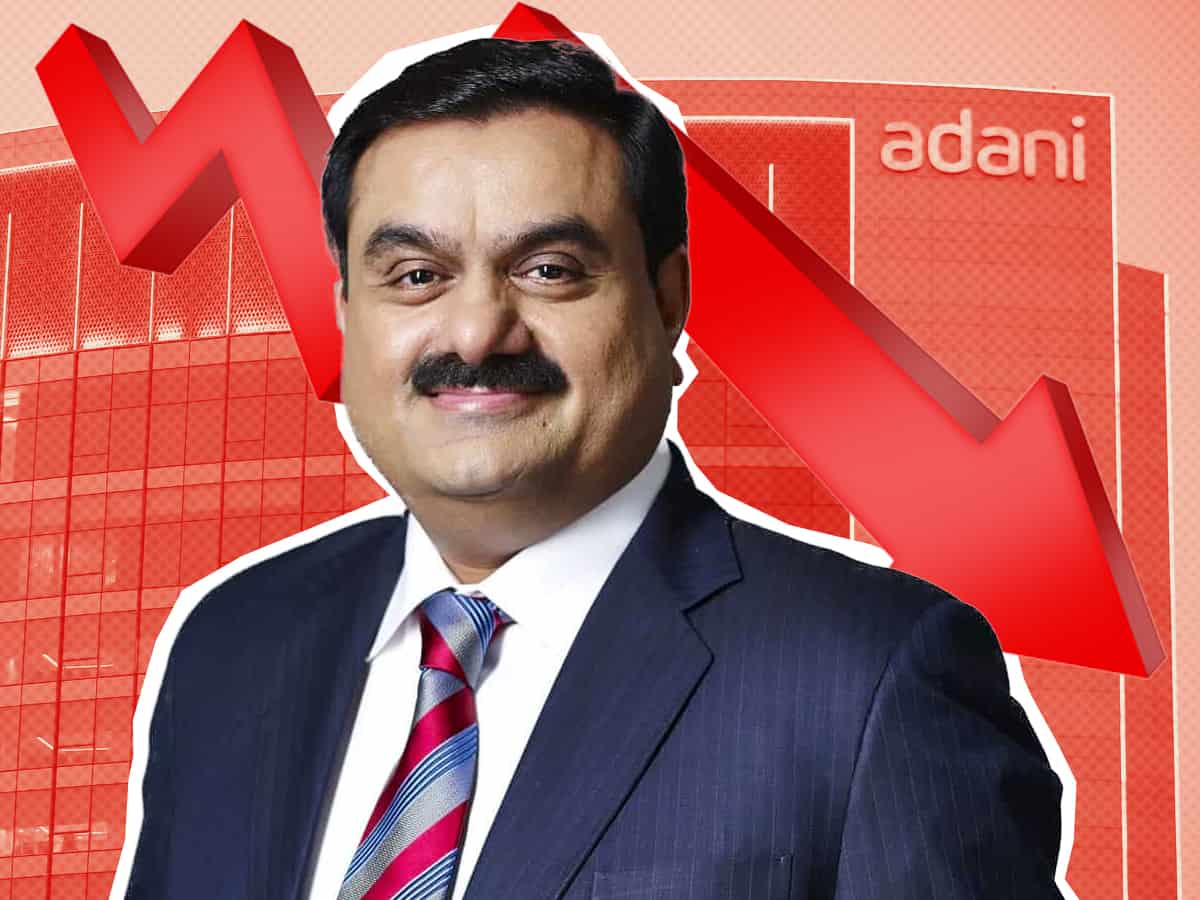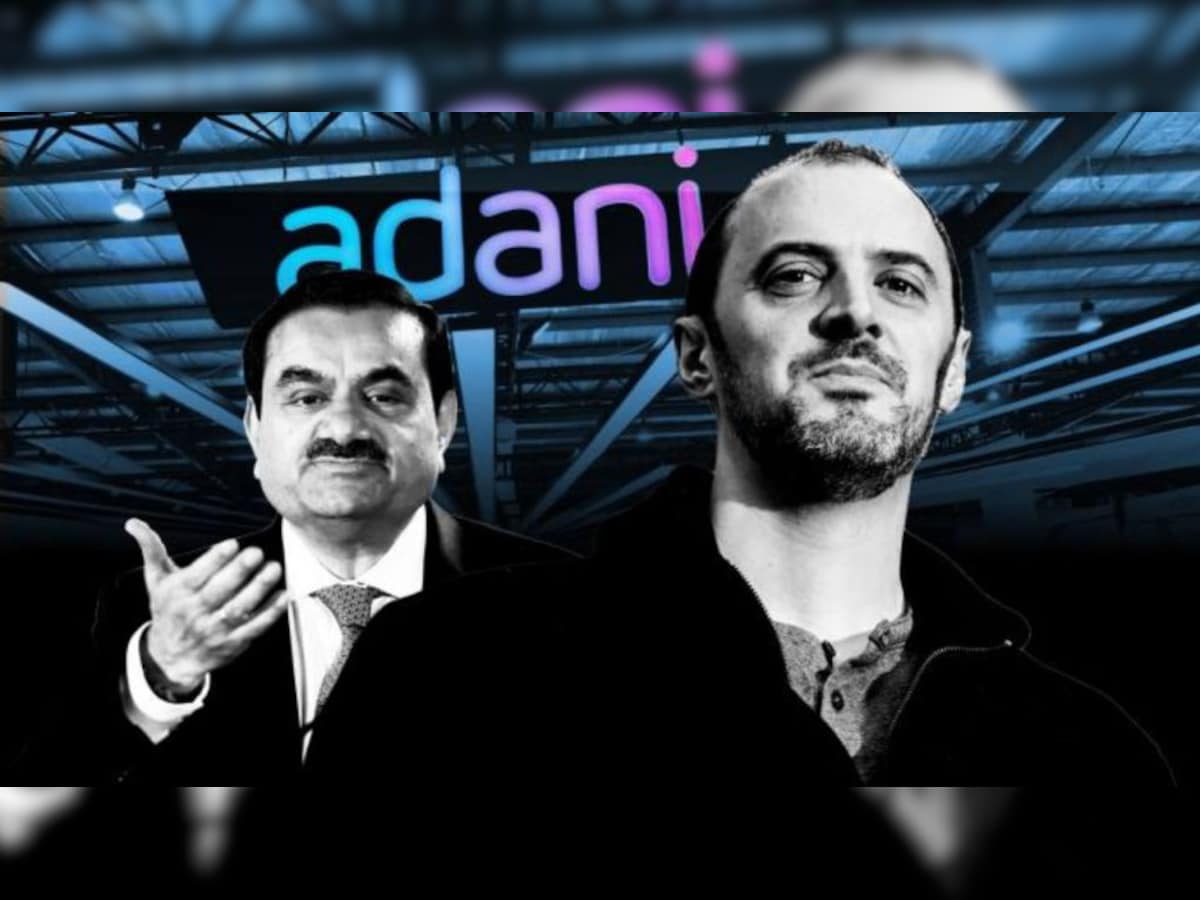5 Popular Reasons Why Adani Stock Is Falling In 2024?
The Adani Group, a conglomerate with holdings in a variety of industries, has been entangled in a number of controversies and issues, including coal mining in Australia, cronyism charges, financial leverage concerns, stock market rigging, tax evasion accusations, and stock manipulation. With the US probe pointing to a lack of corporate governance compliance, investing in Adani Group companies could become riskier than lucrative, eventually dragging down the Adani stocks.

Last week, the Indian stock markets were in complete pandemonium. On Monday, the market dropped a bombshell, sending terror down Dalal Street and the Adani group being in the biggest losers. All Adani Group equities plummeted. Also, the Adani titan has been in the spotlight in 2023 because of controversial charges made by the American short-seller company Hindenburg Research.
Adani Group equities fell up to 13% recently just a week ago, wiping off about Rs 90,000 crore from the combined market value of the ten listed entities. The biggest loser was Adani Green Energy, which fell 13% on the NSE. Adani Total Gas and Adani Energy Solutions followed, each with a nearly 8% drop in share. Adani Enterprises and Adani Ports & Special Economic Zone, both Nifty, move downward by about 7%. Others, including Adani Power, Adani Wilmar, ACC, Ambuja Cements, and New Delhi Television (NDTV), plummeted by up to 5%.
Even after a week, Adani company stocks and bonds fell this Monday after news reports that US prosecutors have deepened their enquiry to analyse the Adani company or people linked to it, including group chairman Gautam Adani, if they were involved in a payoff to Indian officials for “favourable treatment on an energy project.”
So, why did Adani Group stock plummet in 2024?
The compromised image revolving around Adani-Modi friendship.
The first reason would be driven by panic-selling on issues over the group making the highest contribution to political funding through electoral bonds. From the politician Mahua Moitra continuously alleging PM has friends with ‘persons whose names start with A and ends at I’ to politician Rahul Gandhi openly criticising Adani for the high coal rates, all had made a dilemmatic image of Adani over the investors.
There have been many situations where PM Modi has made a foreign visit, and Mr Adani has significantly ‘earned’ projects from that particular foreign or connecting land. Now, when the PM Modi governance-led Electoral Bonds are marked ‘Unconstitutional’ by the apex court of India, it is obvious to have a negative feeling in investors about his contributable contributions towards ‘political chanda’.
According to Pravesh Gour, Senior Technical Analyst at Swastika Investmart, the Adani group’s equities were caught up in market suspicions that they are a major contributor to political parties by purchasing electoral bonds.
Market movements are even more exaggerated by Market regulators.
The second cause, the statement of SEBI chief Mrs Madhuri Puri Buch, exaggerates the above reason even more. Terrible waves in the market exacerbated the drag down after SEBI raised severe concerns about leveraged stock positions held by a few traders, which were driving up stock prices and frothing in the small—and mid-cap stocks.
The geopolitical situation staggered the market emotions.
The third reason stock prices were further dragged down was a dramatic drop in the market due to concerns about brewing border tensions between India and China and Russia’s strong signal to the West that it is heading for a nuclear war.
The parameters of the company may not be favourable for every investor.
Many Adani companies have high PE ratios, indicating a premium valuation. This may hinder value investors seeking stocks with cheaper valuations. Several Adani companies have high beta levels, which signifies extreme volatility. Investors with a low-risk tolerance may be wary of such stocks. Most Adani companies have low or no dividend yields. This may discourage income-oriented investors who desire consistent income from their investments. Hence, this section of person would have been the first to participate in panic selling, dragging down the shares.

The charges by the US Federals kept the fund manager away from Adani stocks.
A week after degrading 90,000 crore from the total market value of Gautam Adani’s business empire’s ten listed businesses, the impact of a US government probe into a bribery accusation has impacted the prominent business group. This Monday, Adani Total Gas stepped down 4.2% to 947.25, while Adani Energy Solutions dropped 3.5% to 1,009. Shares of Adani Enterprises, the group’s flagship, fell half a per cent, while Ambuja Cements, ACC, NDTV, and Adani Wilmar fell more than 2%.
According to US law, investigations can be done by federal prosecutors on foreign bribery and corruption charges if the cases involve American investors or markets. This kind of action in the company can influence the future price at which debt can be raised in international markets. Currently, over 90% of its Adani Group interests are focused on Adani Power and Adani Green Energy stock. Many of its plans produce negative returns ranging from 3.5% to 6% per week.
As of September 2023, Adani’s debt stood at approximately INR2.2 lakh crore. Although there is stability in the group’s debt, cash flow has improved, but most domestic mutual funds are steering clear of Adani equities. This endeavour by US Federals has gained the same attention that the Adani empire received a year ago when Hindenburg busted about allegations of stock manipulation by the business. The news of regulatory action has scared its bonds and stocks.

Meanwhile, Adani Group said over the weekend that it aims to fund USD 14 billion in capex for FY25, which is 40% more than the expected investment of USD 10 billion. 70% of this will go towards green energy, with the remaining going to airports and ports. However, it is still unknown how the company can raise this large sum. Adani’s development plans seem to be limited by the lack of funding. Perhaps this is why long-term investors, like domestic mutual funds, are still hesitant to bet on Adani, causing the stock to sink even further.
The bottom line.
The Adani Group, a conglomerate with holdings in a variety of industries, has been entangled in a number of controversies and issues, including coal mining in Australia, cronyism charges, financial leverage concerns, stock market rigging, tax evasion accusations, and stock manipulation. With the US probe pointing to a lack of corporate governance compliance, investing in Adani Group companies could become riskier than lucrative, eventually dragging down the Adani stocks.
Although the Adani group has denied allegations, these triggers continue to fuel public debate. Even after a year, people are cautious about the organisation’s image, which makes the Adani stocks go through a roller-coaster ride.




